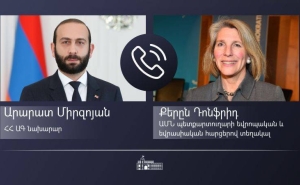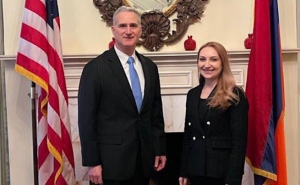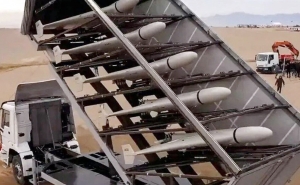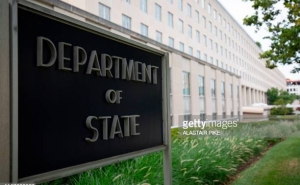 Terrorism Is Not the First Challenge the US Faces Any Longer (Comparative Alalysis of US Military Strategies)
Terrorism Is Not the First Challenge the US Faces Any Longer (Comparative Alalysis of US Military Strategies)
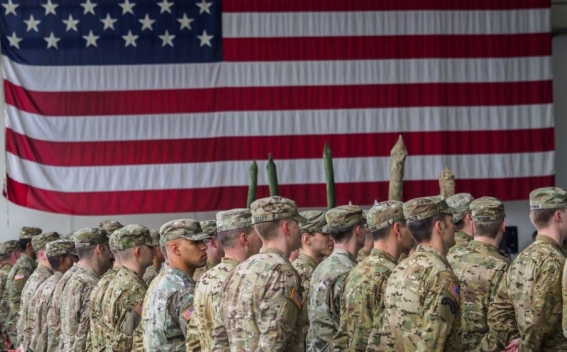
Recently, the US Department of Defense published the US national military strategy for 2018. Following the publication of the strategy, a post was shared on the Twitter page of the US Department of Defense, which states that this is the first, completely new strategy published over the past decade (the strategies introduced in the previous years were just updated). According to the new US strategy, from now on, the main target of national security will be the competition between the superpowers and not the fight against terrorism.
Below we will try to compare the US military strategies published in 2018 and 2015, drawing out the main differences.
The strategy of 2015 defines the following objectives:
Refrain, deny (the opponents' goals) and defeat the opponents,
Prevent, undermine, defeat extremist organizations,
Strengthen global networks with US allies and partners.
The strategy of 2018 defines the following objectives:
Defend the Homeland (US-ed.) from attacks
Maintain the united military superiority both globally and in key regions (the strategy considers Indian-Pacific, Europe and the Middle East as key regions);
Refrain from US opponents’ aggression against the US vital interests,
Activate US Inter-Agency Partnerships to Promote US Influence and Interests,
Maintain a balance of favorable forces in the Indian-Pacific region, Europe, the Middle East, and the Western Hemisphere,
Defend allies from military aggression and encourage partners to oppose the compulsion against them, as well as equitable sharing of responsibilities for ensuring joint protection,
Dissuade, suppress, and prevent the State's opponents and non-state actors from acquiring, disseminating or using weapons of mass destruction,
Prevent the foreign operations by terrorists against the United States, its citizens, allies, and overseas partners,
Ensure that the common domains stay open and free,
Continuously do fast and available work along with the modification of the Ministry's work, culture and management systems,
Create the best innovative National Security Base of the 21st Century that will effectively protect the Ministry's operations and maintain security and solvency.
In the case of both strategies, cooperation with Europe is viewed in the security sphere within the framework of NATO. It is noteworthy that in 2015 the strategy notes "Russian aggression" in this context, while in 2018, the word "adventure" is used in the document instead of "aggression". 2018 strategy is specifically focused on the US expectations from the European allies to increase their military equipment costs.
2018 strategy sees long-term strategic rivalry with Russia and China as a major priority, which, according to the document, requires great and steady investment considering the danger that it represents today in the US security and its growing potential. It is noteworthy that the same strategy states at the same time that in the long run the US expects to establish military relations with China that will exclude aggression and will be based on transparency.
Unlike 2018, 2015 strategy notes that the United States supports the growth of China and encourages the latter to become a US ally in international security.
As for Russia, the 2015 document noted that although Russia contributed to a number of issues, such as drug trafficking and terrorism, it regularly shows that it does not respect the sovereignty of its neighbors and is willing to use force to achieve its goals.
2015 document emphasized the United States' willingness to help its allies to increase military spending in the context of the US-led policy in the Middle East. Meanwhile, in 2018, the document emphasizes the inadmissibility of any power in the region that would show hostility against US. At the same time, the document emphasizes the need for stability and peace in the region, which will contribute to the functioning of a sustainable energy market and secure trade routes.
Taking into account the fact that 2015 strategy was prepared and published in June prior to signing a nuclear deal with Iran, the document contains a sharp reference to Iran, noting that it represents strategic challenges for the international community and supports state-level terrorism. 2018 document also stresses that Iran has destabilizing influence in the region trying to create a nuclear weapon or financing terrorists.
In general, we can state that the two strategies discussed differ from each other, first of all, by changing the challenge facing the United States. If previously a major challenge was terrorism, today the United States views the interstate strategic competition as an emerging challenge, in the context of which China's attempts to frighten its neighbors through the "predatory economy" as well as Russia's "veto right", which allows the country to influence the economic, diplomatic, and security decisions of its neighbors.
As an instrument of competitiveness, the strategy sees the adoption of innovative, non-conventional approaches, as well as inter-agency co-operation with other States (in particular the US Department of State, the Ministry of Justice, the Ministry of Finance, USAID, etc.), which will help to protect US and its partners’ interests.
Other materials on this subject
- Turkey is sending Cold War-era cluster bombs to Ukraine – FP The weapons are designed to destroy tanks by bursting into smaller submunitions, which can linger on the battlefield for years if they do not immediately explode. Each round scatters about 88 bomblets.
- Los Angeles mayor and city council president address US president on Lachin corridor issue Thank you, Mayor Bass, for joining me in communicating to President Biden the urgent need for U.S. leadership to lift the blockade and bring humanitarian relief to the people of Artsakh.
- US Committed to Helping Armenia and Azerbaijan Resolve Issues Peacefully: Blinken Spoke With Pashinyan The Secretary reiterated our commitment to helping Armenia and Azerbaijan resolve issues peacefully.
- Iran to Submit Final Conclusion Over Nuclear Deal Revival by Midnight In comments on Monday, Amirabdollahian said Iran is going to send its final conclusion about the JCPOA talks to the European coordinator in written form at midnight.
- Erdogan, Biden Might Meet in September- Media Turkey plans to buy 40 F-16 fighter jets from the US and upgrade another eighty. US President Joe Biden stated that he expects to receive the approval of the [US] Congress to sell F-16 fighter jets to...
-
 17:08
17:08The regular session of the Anti-corruption Policy Council takes place in Jermuk
-
 15:05
15:05The Prime Minister sends congratulatory messages to the supreme leader of Iran and the President of Iran
-
 11:11
11:11Armenia sends earthquake aid to Turkey
-
 10:43
10:43Commemoration of the Pontiff St. Sahak Partev
-
 09:16
09:16Some roads are closed and difficult to pass in Armenia
-
 19:55
19:55Phone conversation of the Foreign Minister of Armenia with the U.S. Assistant Secretary of State for European and Eurasian Affairs
-
 18:30
18:30Prime Minister Pashinyan and President Khachaturyan meet
-
 18:20
18:20Ararat Mirzoyan with Co-Chairman of the OSCE Minsk Group of France Brice Roquefeuil
-
 17:01
17:01Humans could land on Mars within 10 years, Musk predicts
-
 16:45
16:45France, US urge 'immediate' end to Nagorno Karabakh blockade
-
 16:01
16:01Blockaded Nagorno Karabakh launches fundraiser to support quake-hit Syria
-
 15:59
15:59Earthquake death toll in Turkey rises to 18,342
-
 15:43
15:43Ararat Mirzoyan Held a Telephone Conversation with Sergey Lavrov
-
 15:06
15:06French president rules out fighter jet supplies to Ukraine in near future
-
 14:47
14:475 Day Weather Forecast in Armenia
-
 14:44
14:44President Vahagn Khachaturyan wrote a note in the book of condolences opened in the Embassy of Syria in Armenia
-
 14:20
14:20Azerbaijan’s provocations impede establishment of peace and stability – Armenian FM tells Russian Co-Chair of OSCE MG
-
 12:57
12:57France representation to OSCE: Paris calls on Azerbaijan to restore freedom of movement through Lachin corridor
-
 11:40
11:40Command of Kosovo forces highly appreciated preparation of Armenian peacekeepers
-
 10:16
10:16The United States withdrew from sanctions against Syria for six months the provision of assistance after the earthquake
day
week
month
Humidity: %
Wind: km/h


